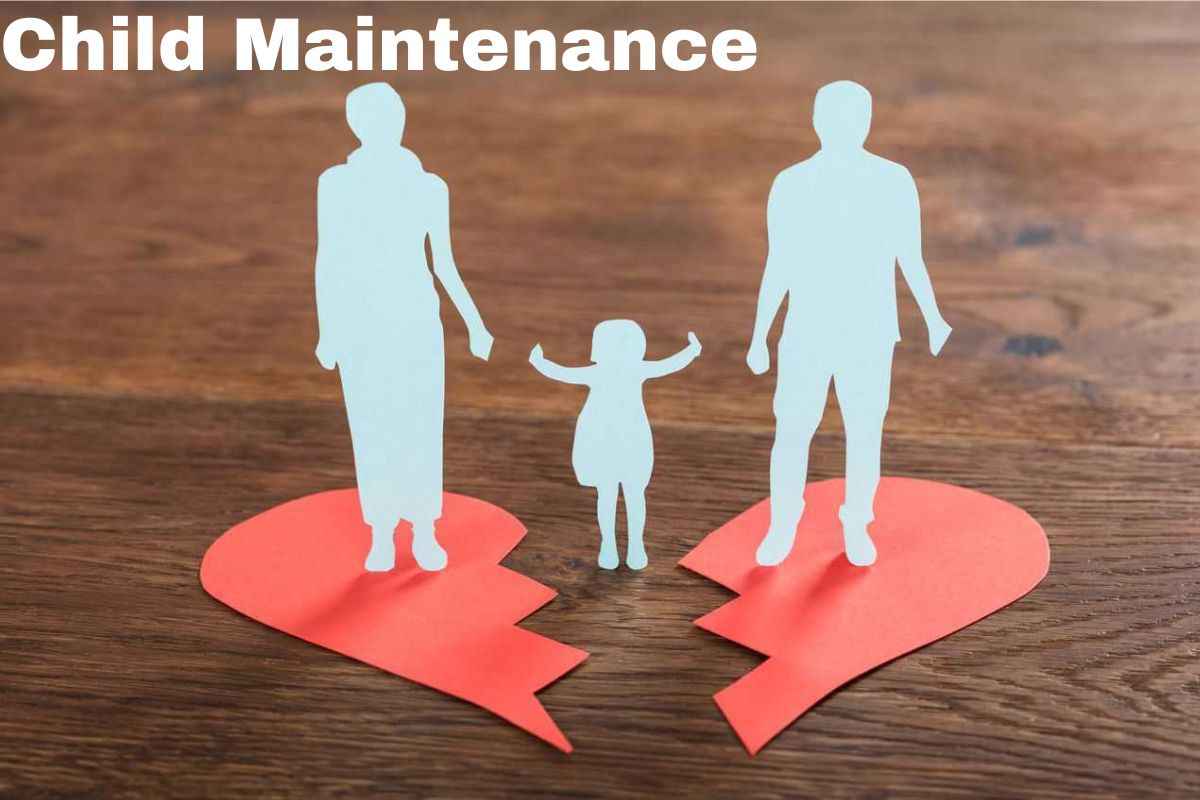After a divorce or legal separation, if you and your ex-partner are responsible for the financial upkeep of any children you raised, you must continue contributing to those expenditures.
In many cases, one parent has to foot the bill for the other.
You and your co-parent may agree on this matter, or if you cannot do so, you can ask the Child Maintenance Service to determine the appropriate amount.
What Is Child Maintenance?
Regardless of whether or not they are legally responsible for raising their children, all parents have a moral obligation to provide for their children financially and contribute to their development.
Child maintenance is a sort of monetary assistance that one parent provides to the other.
Typically, the parent with whom the children spend most of their time (also referred to as the primary caregiver) receives child maintenance payments regularly from the other parent. In addition to monetary support, it may also involve assistance with lodging, bills, and purchasing products like clothes and toys.
The amount of child support is determined by the financial situations of both parents (such as how much money they make and whether or not they have any assets), the requirements of the children, and the amount of time the children spend with each parent.
A “family-based arrangement” is a situation in which the parents agree with themselves over the appropriate amount of child support to pay. In general, both parents will contribute to the financial support of the kid.
On the other hand, if they cannot agree or have a history of violence in the household, the Child Maintenance Service will be allowed to compete, collect, and disperse payments.
Who Can Apply For Child Maintenance?
Your kid must be under 16 or 20 if enrolled in an educational program that lasts up to and including the A level or an equivalent.
You need to have legal permission to live in the United Kingdom and live there as your primary residence. You are eligible to apply if you are:
- One of the parents (you do not need to live with the child)
- A grandmother who provides the majority of the child’s day-to-day care
- the caretaker of the kid
- A youngster who is older than 12 and lives in Scotland
Child support payments are not required of a person who does not have a stable income and is either enrolled in school full-time or incarcerated. There is no need to apply. If you already have a consent order that has been granted by a court in one of the following categories, you are not eligible to utilize the Child Maintenance Service:
- Less than one year old.
- Born before March 3, 2003
How is child maintenance calculated?
Kid support payments may, under certain conditions, continue through the youngster’s 18th birthday if the child intends to continue their education at an educational institution of higher learning.
Once a kid reaches the age of 18, they have the legal right to file a claim against both of their parents unless the matter is resolved using a court order between the parents.
A calculator available online at www.gov.uk makes it possible to do a child support computation in a short amount of time. The non-resident parent’s gross income is the starting point for determining the amount of child support that must be paid.
Then, certain reductions are allowed if that parent has additional children living with them, as well as a reduction depending on the number of overnight stays the kid or children in question have with that parent. These reductions are applied after certain deductions have been made.
The amount of child support that must be paid might be reduced by one-seventh if the kid spends an average of one night away from home each week.
How much child maintenance should I pay?
This is an important issue for the majority of divorced or separated parents. When determining how much child maintenance a parent must pay each week, CMS employs a standard computation that, among other things, considers the paying parent’s income.
If you have one kid and pay the basic rate, your payment will equal 12 percent of the gross amount of your weekly salary. If you have two children, 16 percent of your weekly paycheck will go toward childcare costs.
Using the child support calculator, you will be able to receive an estimate of how much a court-ordered child support agreement may be for your situation. The amount of child support a non-resident parent must pay is decreased in a manner that is proportional to the amount of time the kid spends with the resident parent.
If you have one kid and pay the basic rate, your payment will equal 12 percent of the gross amount of your weekly salary. If you have two children, 16 percent of your weekly paycheck will go toward childcare costs.
Using the child support calculator, you will be able to receive an estimate of how much a court-ordered child support agreement may be for your situation.
The amount of child support a non-resident parent must pay is decreased in a manner that is proportional to the amount of time the kid spends with the resident parent.
When Does Child Maintenance Stop?
If a Child Maintenance Service Agreement has paid child support, then the law requires that stop paying child maintenance until the following conditions are met:
- The age of a youngster is sixteen years old.
- If the youngster stays in full-time school until the completion of their A-levels, then they will be 20 years old.
Despite this, it is a cliche that parents are no longer responsible for their children’s upkeep after they have completed their A-levels and left school.
If the non-resident parent is reluctant to continue with the financial support by a voluntary agreement, the order may be maintained. A request for a court order authorizing the payment of spousal support or child support may be submitted.
This may pay the costs of the child’s attendance at higher educational institutions.
You will, however, need to apply for this before the kid reaches the age of 18 for it to legally stop paying child maintenance.
If you currently have an order in effect, you must apply to the court at least one week before the order’s terms and conditions end.
Can I pay child maintenance direct to my child?
Typically, child support is provided to the person primarily responsible for the kid. If, on the other hand, you have a family-based arrangement, you may be able to send child support payments directly to your kid; however, this is only possible with the consent of both parties.
FAQ-
At What Age Do Child Maintenance Payments Stop?
If your child is enrolled full-time in school or college and preparing for A-levels or higher, you are normally expected to pay child support until they are 16 years old, or until they are 20 years old in other circumstances.
Does child maintenance stop when the child reaches 18?
When a kid turns 18, the age at which a parent is no longer required by law to pay child support for their child often coincides with the child’s attainment of adulthood.
How can I reduce my child maintenance payment UK?
You could be eligible for a discount if you pay child support for more than one kid. Get a discounted fee for overnight stays – If you keep your kid with you for at least four nights each week, you can be qualified for a discounted cost.
Can I refuse to pay child maintenance?
Child Maintenance Service (CMS) may take enforcement action against you if you are the parent responsible for paying child maintenance and miss a payment or don’t pay the whole amount. Any action taken by CMS may require payment from you.
How much maintenance Should a father pay per child?
For a kid under the age of five who receives a greater wage than the base rate, the tax rate is 12%. You will be accountable for 16 percent of your gross salary each week if you have two children. This sum will be subtracted from the total amount that you are paid.
Conclusion:
A societal transformation in ideas toward parental duty must go hand in hand with official action if child maintenance is to be considered or “reformed.”
We need to reach a point where there is a strong and widespread expectation that, first, both parents will always split the cost of raising children. And, second, with the all-encompassing support that I have described, they will resolve the tricky post-separation issues that trigger the collection of child support.






